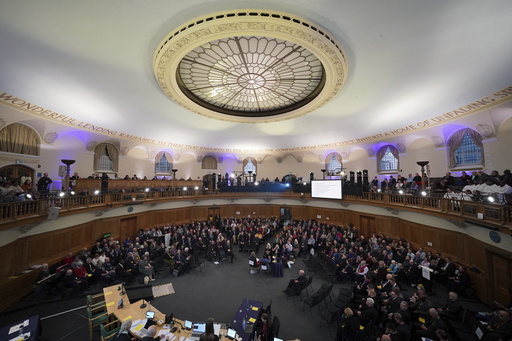
LONDON — On Tuesday, the General Synod of the Church of England convened to vote on enhancing independent oversight concerning the handling of abuse allegations, amidst mounting calls for greater accountability within the church. However, many survivor support groups expressed their disappointment with the decision, criticizing the church for not committing to completely independent safeguarding initiatives. The outcome was described by these groups as “incredibly disappointing.”
Survivors and their advocates had hoped the Synod would approve a proposal mandating all church safeguarding officers to report to an independent organization. Instead, the vote favored an alternative plan which allows several diocesan and cathedral officials to retain their positions under current church employment. Following lengthy deliberations, the majority sided with Bishop Philip North of Blackburn, who argued that a fully independent approach was “eye-wateringly complex” and would require years to execute. He warned that during this lengthy process, the necessary changes demanded by both the church and the wider society might not be forthcoming.
Advocate Andrew Graystone lamented the result, labeling it as “shocking arrogance.” He emphasized that for victims of abuse by clergy, the expectation remains that they would report their experiences to a bishop, and safeguarding personnel would continue to be situated in church offices, thereby employed by the very bishops who could potentially be implicated in the oversight of such cases. Graystone asserted that the Church of England had squandered a vital chance to restore trust among its congregants.
Moreover, attorney David Greenwood, representing abuse victims, observed that the proposal supported by the Synod would not adequately address issues such as conflicts of interest and the tendency to defer to clergy.
This meeting marked the Synod’s first gathering since the resignation of Justin Welby, former archbishop and spiritual leader of the global Anglican Communion, who stepped down following an investigation that had ignited renewed criticism regarding accountability among senior church officials. This inquiry revealed that Welby failed to report allegations of serial physical and sexual abuse by volunteer John Smyth when he first learned of them in 2013. The investigation indicated that if Welby had acted sooner, Smyth could have been prevented from continuing his abuses before his death in 2018.
Archbishop of York Stephen Cottrell, Welby’s interim successor, has also been under scrutiny regarding his leadership, particularly after it was revealed that a priest with allegations of sexual misconduct had been reappointed not once, but twice, during his tenure. Cottrell acknowledged on Monday that he had made errors but reassured that he remains committed to instigating meaningful reforms within the church.

